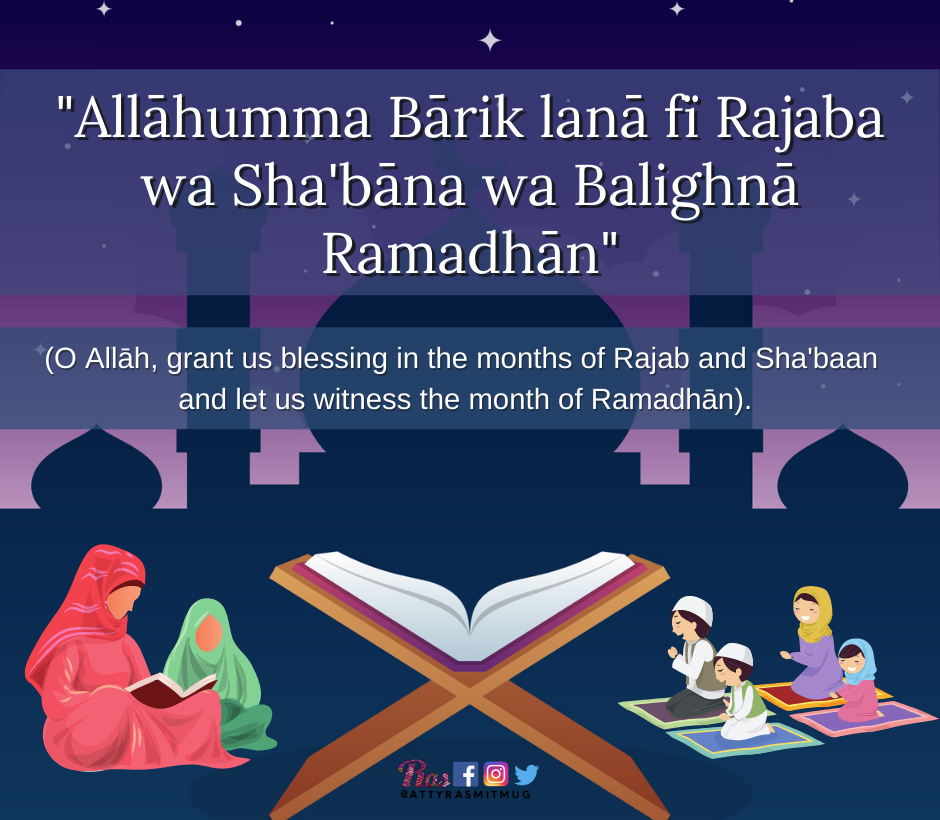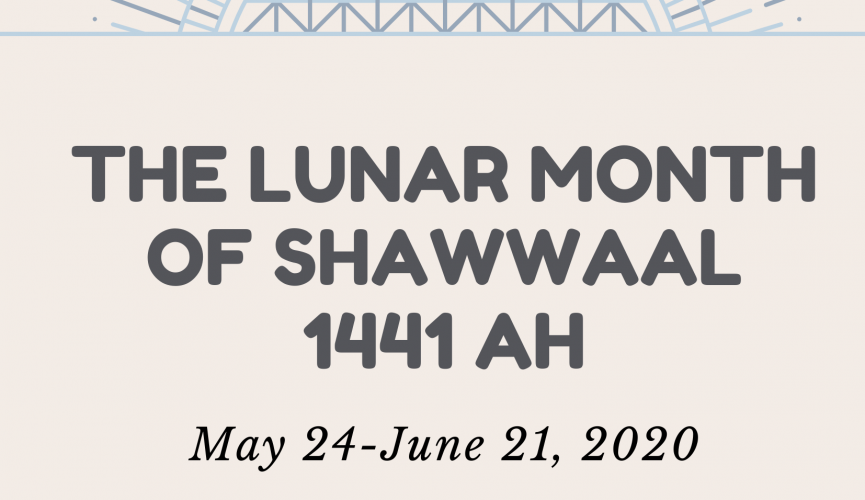
Today, Muslims across the world are remembering the greatest miracle of the prophet, The Night Journey.
The event took place on the 27th night of the Islamic month of Rajab.
This miracle can be divided into two parts: Night Journey on the earth (Isra) and Ascension to the heavens (Miraj) – parts of this unique journey are mentioned and narrated by the Glorious Quran, authentic hadith resources and history resources.
In Sūrah Al-Isrā (Surah 17), it is mentioned:
“Glory be to Him Who made His servant (Prophet Muhammad ﷺ) to go on a night from the Sacred Mosque (Masjid al-Haram) to the Farthest Mosque (Masjid al-Aqsa) of which We have blessed the precincts, so that We may show to him some of Our signs; surely He is the Hearing, the Seeing”.
[Qur’an, 17:1]
•Before the Journey
Before the Prophet Muhammad ﷺ took this journey, the ceiling of the house he was staying in (In Makkah) opened and Angel Jibra’il (Gabriel) came down. He cut open the Prophet’s chest and washed it with Zam Zam water as preparation for the miracle he was about to encounter.
After the Prophet Muhammad ﷺ had performed the Isha prayer, Angel Jibra’il came to him with a white animal that was slightly larger than a donkey but smaller than a mule. The animal was called Burāq and was one of the animals of paradise.
Angel Jibra’il told the Prophet Muhammad ﷺ to sit on Burāq, which he did.
Then, they set on their unique journey through the night.
Burāq was a very fast animal – the length of its stride was as far as the eye could see.
The Prophet Muhammad ﷺ arrived at a land with palm trees. Angel Jibra’il humbly asked him to pray 2 rakats, which he did. Afterwards Angel Jibra’il asked him if he knew where he had prayed. The Prophet Muhammad ﷺ replied, “ALLĀH knows best.” Angel Jibra’il told him it was Yathrib, which is what Madinah was called before the Prophet (pbuh) moved there.
The Prophet Muhammad ﷺ and Angel Jibra’il continued on their journey with Burāq. They reached another place where Angel Jibra’il humbly asked the Prophet Muhammad ﷺ to pray 2 rakats. Again Angel Jibra’il told him the name of the place – Tur Sinai – Mount Sinai where the ten commandments were given to Prophet Moses (peace be upon him).
The next stop they made was the city where Prophet Jesus (peace be upon him) was born.
They continued on their way until they reached Jerusalem and there they entered Masjid –al- Aqsa where ALLĀH had gathered all the prophets from Adam to Jesus. Then, Prophet Muhammad ﷺ led them all in prayer.
•Journey to the Heavens – Al-Miraj
After the Prophet Muhammad ﷺ took the night journey from Masjid al-Haram to Masjid al-Aqsa, he climbed to the upper heavens.
The Prophet Muhammad ﷺ went to the heavens on stairs called al-mirqat, where one step is made of gold and the next of silver and so on. These stairs are veiled from us.
The Prophet Muhammad ﷺ went up these stairs until he reached the first heaven. When the Prophet Muhammad ﷺ and Jibr’il arrived at the first heaven, Jibril requested the gate to be opened. The angel assigned to that gate asked Jibril, “Who is with you?” Jibril answered, “It is Muhammad.” The angel asked Jibril, “Was he dispatched? Is it time for him to ascend to the heaven?” Jibril said, “Yes.” So, the gate was opened for him, and Prophet Muhammad ﷺ entered the first heaven.
There, Prophet Muhammad ﷺ saw Prophet Adam (peace be upon him). To Adam’s right, the Prophet ﷺ some bodies, and to Adam’s left, other bodies. If Adam (peace) would look to his right he would laugh and if he would look to his left he would cry. Adam (peace be upon him) was seeing the souls of his descendants. Those on his right were his descendants who would die as believers and those on his left were his descendants who would die as non-believers.
Then the Prophet Muhammad ﷺ went up to the second heaven. In this second heaven, Prophet Muhammad ﷺ saw the Prophets Isa and Yahya (peace be upon them). Isa and Yahya are cousins; their mothers were sisters. They welcomed the Prophet ﷺ and made dua for him for good things.
The Prophet then went up to the third heaven where he found Prophet Yusuf (peace be upon him). Prophet Yusuf was extremely handsome. ALLĀH bestowed half the beauty on Yusuf. Yusuf (peace be upon him) received the Prophet Muhammad ﷺ with a warm welcome and made dua for him for good things.
Then the Prophet Muhammad ﷺ went up to the fourth heaven, where he found Prophet Idris (peace be upon him). Idris welcomed the Prophet Muhammad ﷺ and made dua for him for good things.
In the fifth heaven, the Prophet Muhammad ﷺ met Harun (peace be upon him), the brother of Prophet Musa (peace be upon him).
In the sixth heaven, he encountered Prophet Musa (peace be upon him).
Each of these Prophets received Prophet Muhammad ﷺ with a warm welcome and made dua for him for good things.
Then the Prophet ascended to the seventh heaven and that is where our Messenger saw Prophet Ibrahim (peace be upon him). Prophet Ibrahim is the best of the prophets after our Prophet Muhammad ﷺ.
The Prophet Muhammad ﷺ saw Prophet Ibrahim (peace be upon him) with his back against al-Bayt al-Ma’mur.
To the inhabitants of the heavens, al-Bayt al-Ma’mur is like the Ka’bah is to us. Every day 70,000 angels go there; then exit from it and never return. The next day another 70,000 angels go, come out and never return. This will continue until the Day of Judgment.
In this, there is an indication as to the greatness of the numbers of the angels there are. Their numbers are far more than the numbers of the humans and the jinns put together.
In the seventh heaven, Prophet Muhammad ﷺ saw Sidrat al-Muntaha-a lote tree. Each of the fruits of this tree is as large as a big jar. The leaves of this tree are similar to the ears of the elephants. Sidrat al-Muntaha is an extremely beautiful tree. It is visited by butterflies made of gold. When these butterflies gather on this tree, its beauty is beyond description.
•Journey beyond the Heavens & Gifts for the Ummah
Then the Prophet Muhammad ﷺ went up and reached a place where he heard the creaking of the pens used by the angels who are copying from the Preserved Tablet. He then went beyond that place to a place which we can neither describe nor imagine.
The Prophet Muhammad ﷺ was elevated and approached his Lord who is Aziz (Mighty and Strong) and Jabbar (Compelling).
The Prophet Muhammad ﷺ saw the light of ALLĀH, which we cannot describe and God revealed to him whatever he revealed.
The Prophet Muhammad ﷺ was given, amongst other things, five Obligatory Prayers.
At first, Allah obligated fifty prayers. When Prophet Muhammad ﷺ encountered Prophet Musa (peace be upon him), Musa told him to make dua to his Lord to ease the obligation of fifty (50) prayers, because his nation could not handle that. Musa (peace be upon him) said, “I have experience with the people of Israel, and I know your nation cannot bear that.” So the Prophet Muhammad ﷺ asked his Lord to lessen these prayers for his people. Five prayers were eliminated. Once again, Musa told the Prophet Muhammad ﷺ to ask Allah to lessen the number of prayers. ALLĀH did. Nine times the Prophet Muhammad ﷺ made supplication to ALLĀH to lessen these prayers–until these prayers were lessened to Five (5) Obligatory Prayers.
So Prophet Musa (peace be upon him) was a great benefit to us. Had we been obligated to pray fifty prayers a day, this would have been a difficult matter for us.
•The Prophet Muhammad ﷺ Returns to Makkah
After all these matters took place with the Prophet Muhammad ﷺ, he returned to the city of Makkah.
The next day the Prophet Muhammad ﷺ told the people what happened to him the previous night. The people of Quraysh mocked the Prophet and said that it is not possible.
Believers believe in this unique journey because it displays the unique status of the Prophet Muhammad ﷺ and the power of ALLĀH, the Exalted: ALLĀH says Glory be to Him Who made His servant (Prophet Muhammad) to undertake this night journey. Our Lord is able and capable of doing everything because He controls and manages everything.
May ALLĀH Almighty help us to learn lessons from this unique journey.
Ameen…





